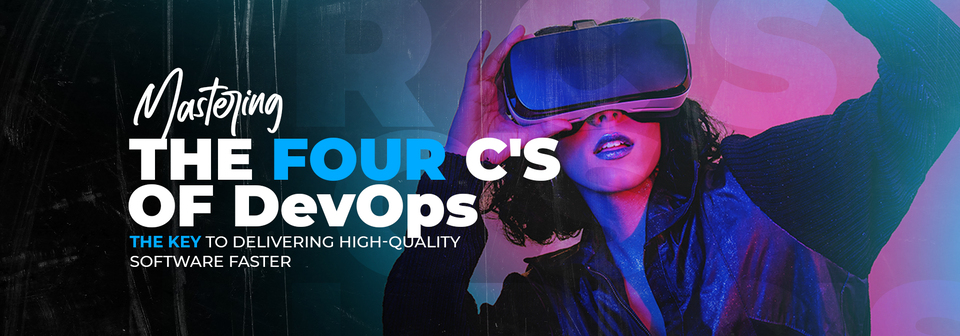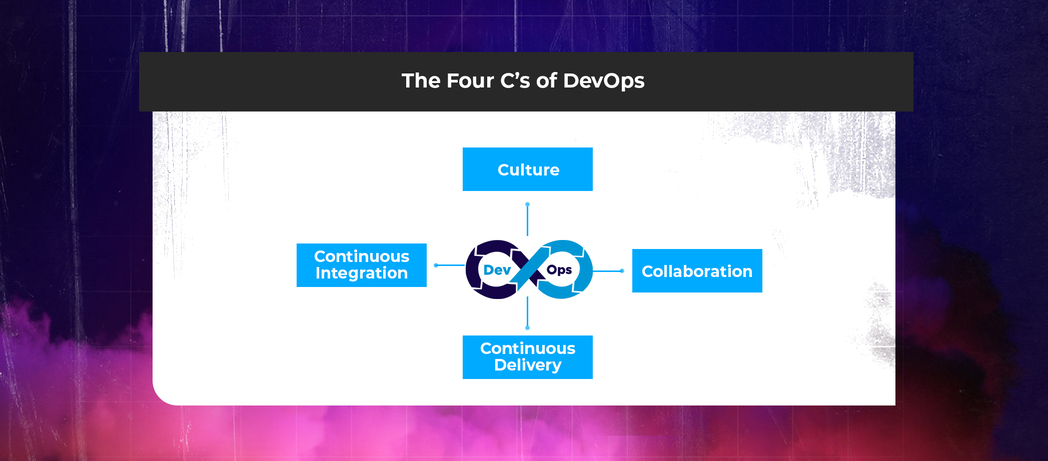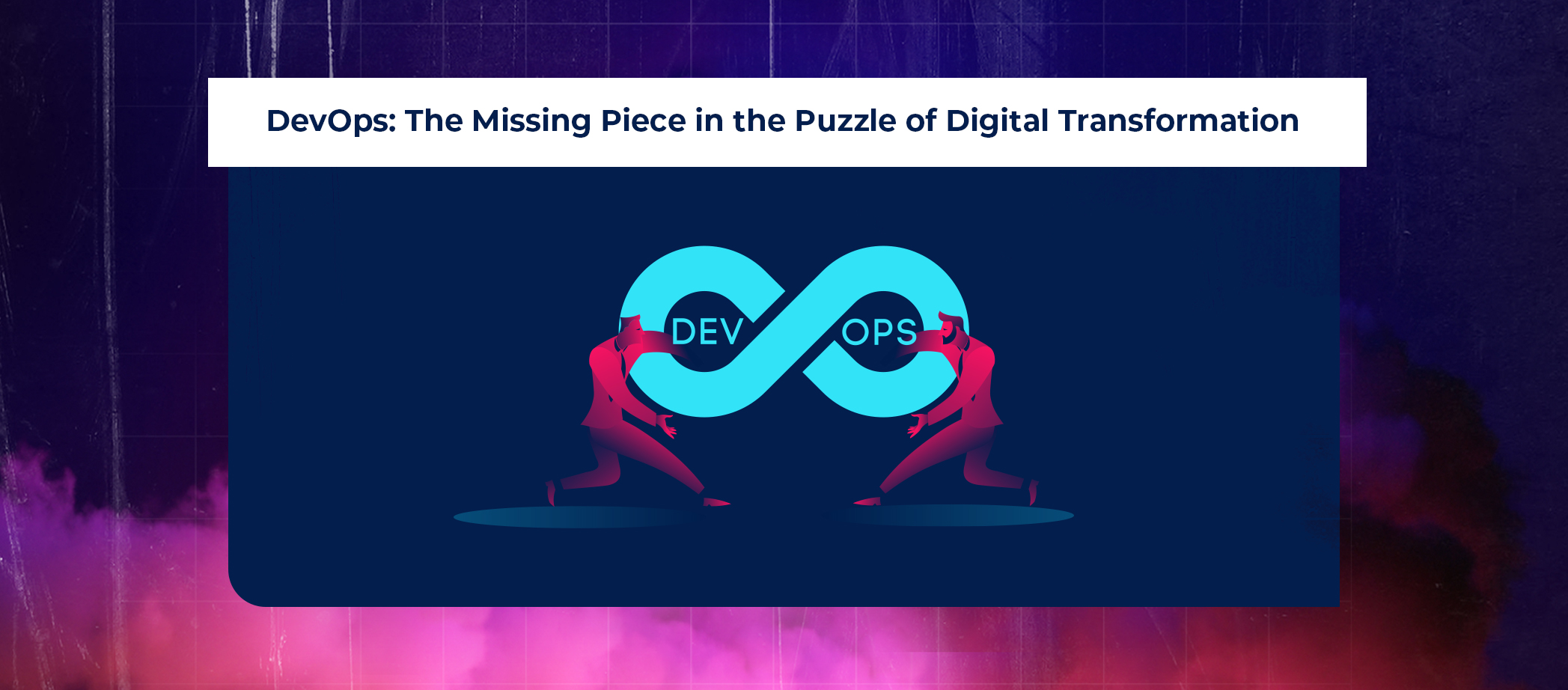
In today’s rapidly changing and highly competitive business landscape, DevOps has become an essential approach for software development and delivery. DevOps is a software development methodology that brings together software development (Dev) and IT operations (Ops) to deliver high-quality software applications more efficiently and quickly. However, implementing DevOps successfully requires understanding and mastering the Four C’s of DevOps: Culture, Collaboration, Continuous Integration, and Continuous Delivery.
PeoplActive is an ISO 27001:2013 certified leading tech hiring platform. By utilizing an exclusive network of 4000+ Silicon Valley caliber tech talent specialized in 100+ in-demand IT skills, it was pretty easy for businesses to hire game-changing Engineers and developers in just 48 hours. So, if you want to accelerate your business, schedule a quick call with our experts now.
Table of Contents
Toggle
Table of Contents
ToggleThe Four C’s of DevOps are a set of principles that guide software development teams to create a culture of collaboration and continuous improvement. DevOps requires a fundamental shift in the way software development teams work, and understanding the Four C’s is essential to making that shift happen. This blog post will provide a detailed introduction to the Four C’s of DevOps, explain their importance, and how to implement them in your software development process.
So let’s get started! 
Culture
Culture is the first of the Four C’s of DevOps. Culture is about creating an environment where collaboration, experimentation, and learning are encouraged. The DevOps culture values transparency and open communication, where everyone is empowered to make decisions that are in the best interest of the team and the organization. To create a DevOps culture, you need to break down the silos that exist between development, operations, and other teams. Teams should work together from the beginning of the software development lifecycle to ensure that everyone understands the requirements and goals of the project. This collaboration ensures that the software is delivered on time, within budget, and to the satisfaction of all stakeholders. A DevOps culture also promotes experimentation and continuous learning. Teams are encouraged to try new tools and processes to find the best way to deliver software. Failure is viewed as an opportunity to learn and improve, rather than as a negative outcome.
Collaboration
Collaboration is the second of the Four C’s of DevOps. Collaboration is about bringing together the right people, processes, and tools to build high-quality software. Collaboration ensures that everyone is working towards the same goal and that the team is delivering value to the customer. To promote collaboration, teams should work together from the beginning of the software development lifecycle. This ensures that everyone understands the requirements and goals of the project. Teams should also have a shared understanding of the tools and processes used in the project. Collaboration also involves breaking down the barriers between teams. This means that developers and operations teams work together to ensure that the software is delivered on time, within budget, and to the satisfaction of all stakeholders. Collaboration also ensures that feedback is shared between teams, allowing for continuous improvement.
Transform your development process with our DevOps expertise.
Continuous Integration
Continuous Integration is the third of the Four C’s of DevOps. Continuous Integration is about ensuring that the code is continuously integrated into a single repository and tested frequently. This ensures that any issues are identified and fixed as soon as possible, reducing the time it takes to deliver high-quality software.
To achieve Continuous Integration, developers should work on small, manageable pieces of code that are integrated into a shared repository frequently. This ensures that everyone is working on the latest version of the code and that any issues are identified and resolved quickly.
Automated testing is also a crucial part of Continuous Integration. Automated tests ensure that any issues are identified and fixed before the code is deployed. This ensures that the software is delivered with a high degree of confidence and reduces the risk of issues arising in production.
Continuous Delivery
Continuous Delivery is the fourth of the Four C’s of DevOps. Continuous Delivery is about ensuring that the software is delivered to the customer quickly and efficiently. This involves automating the deployment process, ensuring that the software can be deployed with minimal human intervention.
To achieve Continuous Delivery, teams should automate as much of the deployment process as possible. This includes automating the testing, building, and deployment of the software. Automating these processes ensures that the software is delivered quickly and with a high degree of confidence.
Continuous Delivery also involves monitoring the software in production. This ensures that any issues are identified and resolved quickly, reducing the time it takes to deliver high-quality software.
Also Read: DevOps: The Missing Piece in the Puzzle of Digital Transformation

Summing it up
Mastering the Four C’s of DevOps – Culture, Collaboration, Continuous Integration, and Continuous Delivery – is essential for delivering high-quality software applications faster and more efficiently. These principles help software development teams to create a culture of collaboration and continuous improvement, breaking down the silos between teams and automating key processes to catch and fix issues early in the development process. By embracing the Four C’s of DevOps, software development teams can stay ahead of the competition, responding quickly to changing customer needs and market demands, and delivering innovative solutions that meet the needs of their customers.
PeoplActive DevOps experts are highly skilled in implementing DevOps methodologies and can guide you through the process of creating a culture of collaboration and continuous improvement. They can assess your current software development process, and implement tools and technologies to automate key processes such as continuous integration and delivery. With our expertise, you can achieve faster and more efficient software development and delivery, responding quickly to changing customer needs and market demands. PeoplActive DevOps experts can help you stay ahead of the competition and deliver high-quality software applications that meet the needs of your customers.
Looking to Hire DevOps Engineers?


